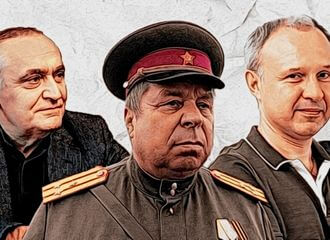На русском языке:
Год после выборов. Сколько суверенитета Лукашенко отдал России за возможность оставаться у власти?
На беларускай мове:
Год пасля выбараў. Колькі суверэнітэту Лукашэнка аддаў Расіі за магчымасць заставацца пры ўладзе?
Russia and Belarus have been preparing for integration for 25 years. For this prospect, Belarus receives cheap gas and oil and loses hopes for economic and political reforms. It is difficult to understand what is really happening in the field of the Russian-Belarusian merger: not only the content of the «road maps» not disclosed, the authorities of the countries cannot even determine their number. When in 2019 we were talking about 31 maps, then in 2021 for some reason there were 28 of them.
Andrey Eliseev, ISANS Belarus expert, wrote a large article where he said that in order to maintain Russian support for Lukashenka over the past year, he went to surrender the sovereignty of Belarus in several areas at once. And behind the dry paragraphs in a few lines, which showed the public, there are extensive documents on the rewriting of the laws of the Republic of Belarus in the Russian manner.
According to the expert, in order to maintain his position, Lukashenka has handed over several spheres of sovereignty of Belarus over the past year:
- Informational. Now on the state TV in Belarus, significant events are commented by propagandists from Russia and Ukraine.
- Independent foreign policy and defense. There are already calls from the cabinets to remove from the Constitution the language on the desire for neutrality.
- Independent legal norms. In addition, the "integration" of Belarus with the Russian Federation in the educational sphere is proceeding at an accelerated pace, up to plans to create "joint" history textbooks.
«Given the large degree of economic dependence of Belarus and the fact that its economy is only about 3% of the size of the Russian one, in practice, with the exception of rare ostentatious examples of «equality», we will talk about a large-scale transition of Belarus to Russian legal norms in almost all spheres, with the most powerful institutional binding of Belarus to Russia», –Eliseev says.
It is important to say about the language of the so-called «union programs» that have become known to people.When it is said about the «unification» of law, it means rewriting Belarusian laws under the Russian literally under the copy, and it is said where about «harmonization» — about the maximum possible bringing them to a single denominator, mainly based on the needs and wishes of the Russian side.
Dmitry Mezentsev, the former Ambassador of Russia, at the end of 2020, said that integration agreements will mean «the publication, addition, modernizing of more than 700 regulatory legal acts».
This means that many (if not most) Belarusian ministries and departments will be reduced, since there’s simply no need in so many people to copy Russian laws.
The expert also emphasizes that «integration» cannot be compared with the practice of the EU, since the German economy there is 22%, and not 97% as in the case of comparison with the Russian Federation.
«Integration» can be compared with the Code of Laws of the Russian Empire, when the Statute of the Grand Duchy of Lithuania was abolished in 1840. Or with the BSSR, when Minsk had only nominal sovereignty, and all decisions were made by Moscow.
It means that the Belarusian authorities conduct secret approvals and consider it necessary to report not to the Belarusian people, but exclusively to their Russian colleagues.


